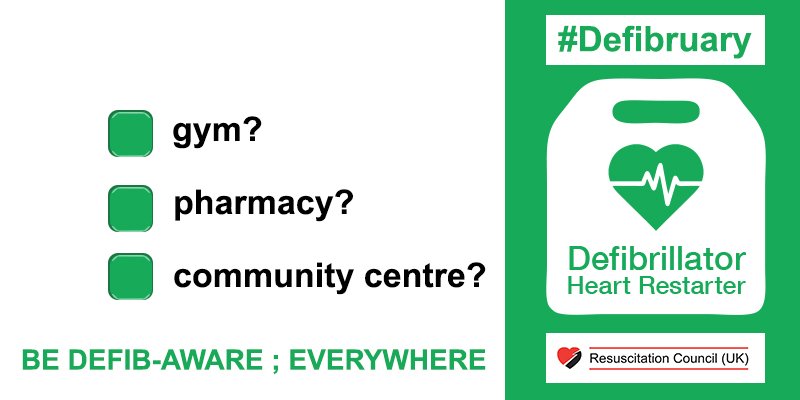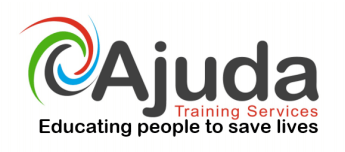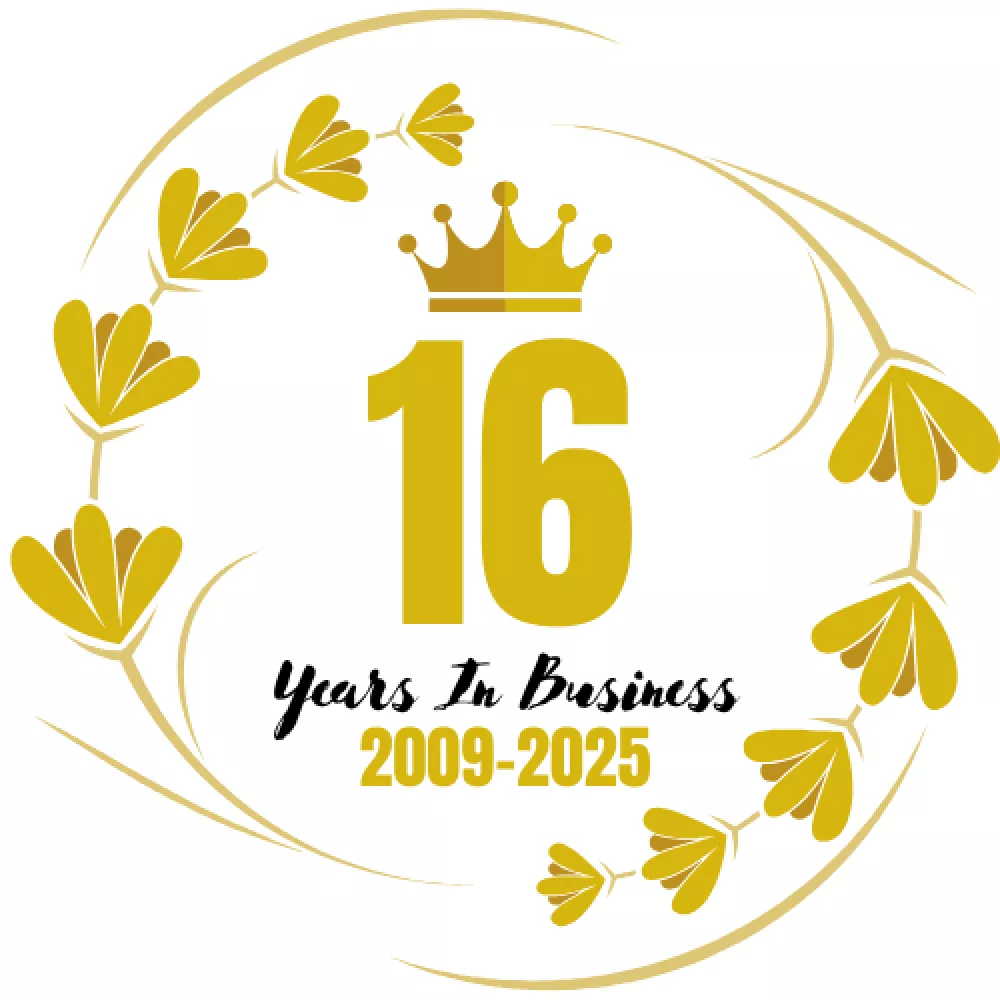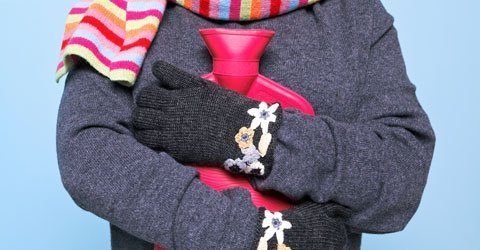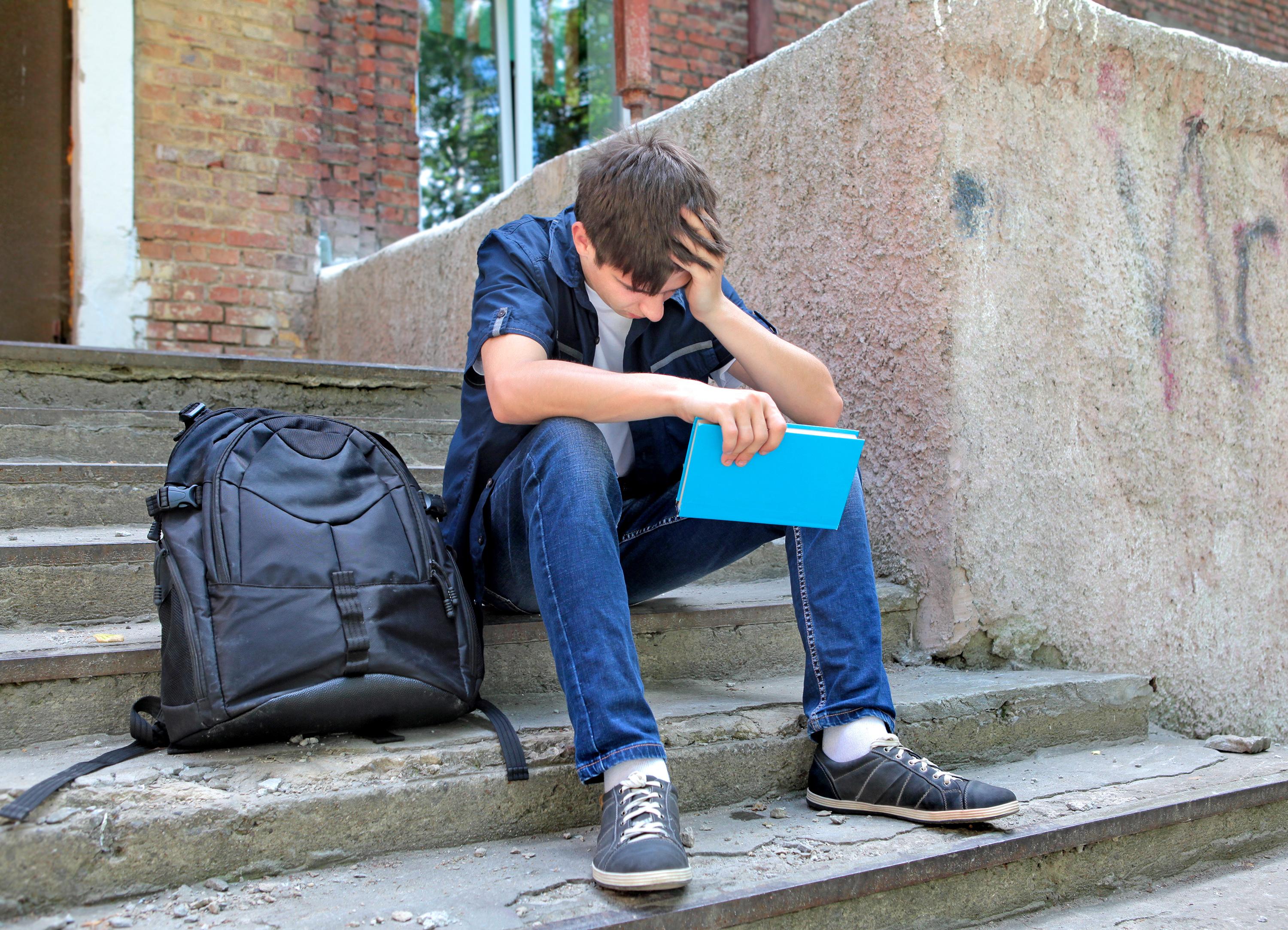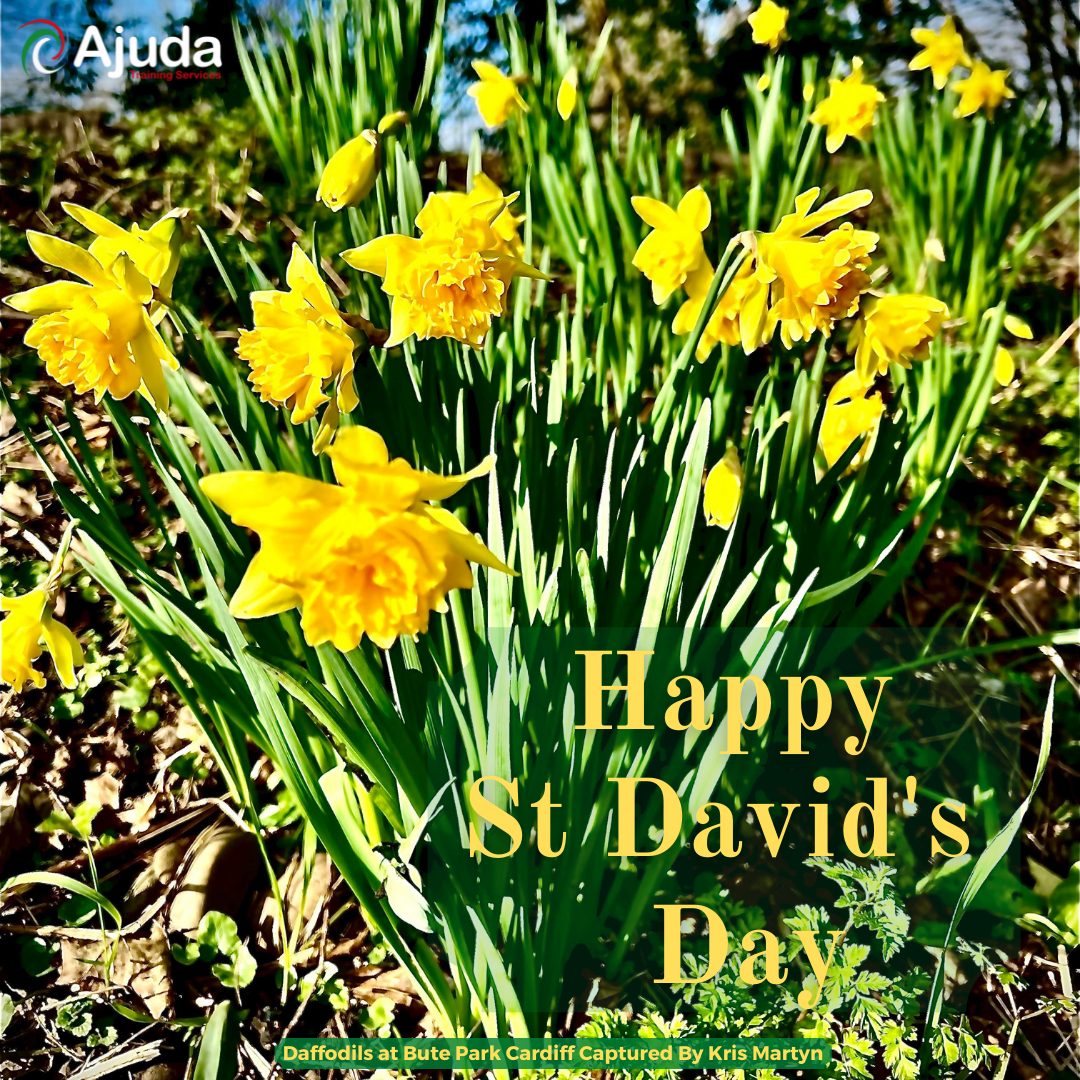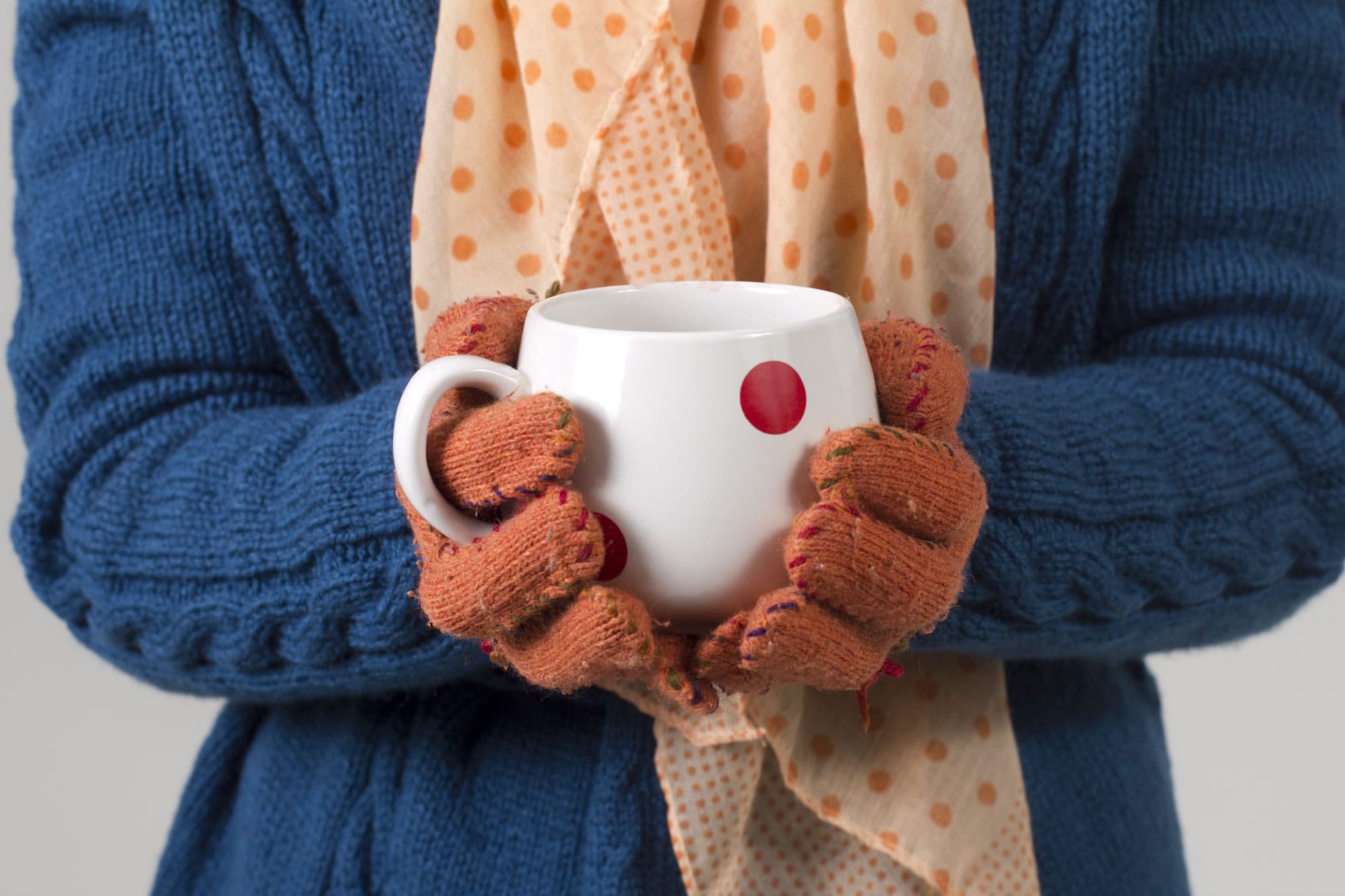
We are closing at 16.30pm on the 24th December 2025 and re-opening on the 5th January 2026.
We would like to take this opportunity to thank you all for your custom over the past year, and wish all of our clients, old and new, a very Merry Christmas and a happy and healthy New Year.
2025 has been a special year for us at Ajuda and we are looking forward to what is to come in the new year.
Our open courses will be running throughout 2026 at our training academy in Cardiff Bay.
Enjoy your break and we’ll see you in 2026!
Category: News
Make your Christmas memorable for the right reasons

According to the Royal Society for the Prevention of Accidents (RoSPA), more than 6,000 people will end up in hospital on Christmas Day and over the Christmas period more than 80,000 people visit A&E and these numbers appear to be rising.
Not only is there an increase in admissions due to common winter illnesses, hospitals in the UK see thousands of people treated for Christmas-related injuries. Christmas sees injuries from knives, trips (e.g. from fairy light wires), food poisoning and burns. With serious incidents such as house fires also being more common than during other times in the year; People are 50% more likely to die in a house fire over Christmas than at any other time of year.
Approximately 350 people a year are hurt by Christmas tree lights, according to RoSPA. Injuries include people falling while they’re putting them up, children swallowing the bulbs, and people getting electric shocks and burns from faulty lights. RoSPA’s advice is to ‘Test your lights and the wiring before you put them up, as they can deteriorate over the years. If you have old lights, buy new ones that meet higher safety standards, don’t overload sockets, as that’s a fire risk.’
To put these risks into perspective, here are just a few Christmas accident statistics:
– Since 1996, 31 people have died from watering their Christmas tree with the lights plugged in
– 1 in 10 people burn themselves while setting fire to Christmas pudding
– 350 people a year are hurt by Christmas tree lights
– 1,000 people a year are hurt when decorating their homes
– 30 people die from food poisoning each Christmas
– People are 50% more likely to be in a house fire at Christmas than at any other time of the year
Here are some handy hints to keep your house safe:
– Do not leave candles unattended (this advice should be followed throughout the year)
– Ensure Christmas cards and wrapping paper are kept clear of open flames (e.g. do not hang cards above the fireplace and do not light candles near cards)
– To reduce the risk of trips, slips and falls, keep holiday clutter to a minimum (e.g. invest in a cable tidy to keep stray wires minimal)
– Watch out for small items that could cause a choking hazard, particularly in young children (e.g. Christmas cracker prizes)
– Open packaging with scissors not knives to avoid careless injuries
– If you have old Christmas lights, consider investing in new ones which will meet much higher safety standards
– Keep the lights switched off until the Christmas tree is decorated and don’t let children play with the lights (some have swallowed the small bulbs)
– Don’t overload sockets
– Don’t let bulbs touch anything that can burn easily such as paper (this includes decorations)
– Keep glass baubles out of reach of toddlers and pets
– Don’t be tempted to leave the lights on when going to bed or when leaving the house
– Follow the instructions on the turkey and don’t risk short cuts as it takes hours to cook a turkey thoroughly (uncooked turkey can cause salmonella poisoning, which can be life-threatening for vulnerable people)
– Do NOT drink and drive!
Take this advice on board to ensure that your Christmas is memorable for the right reasons. Have a lovely, safe Christmas and a very Happy New Year. If you have any other suggestions on ways to stay safe over Christmas, please Tweet us on @ajuda_training.
To book yourself onto any of our valuable, life-changing courses (such as, First Aid, Health and Safety or Food Hygiene) in the New Year, please see our Course Calendar and use our new online booking system to book your place. To view our Christmas opening hours, please click on the picture below.
Ajuda is a proud sponsor of The Mental Health & Wellbeing Show May 15th 2026

A professional all-day show on the 15th May 2026. This year you will find us at Cardiff City Football Stadium aiming to promote positive mental health through open conversation, promoting awareness and sharing real-life experiences.
The show will include a selection of seminars focused on topics such as coping with mental illness, ways to promote positive mental health, and how to support people around you who are suffering with ill mental health. Alongside this is an exhibition with over 60 charities, organisations and companies promoting their helpful resources, services and initiatives designed to support positive mental health and wellbeing.
Adult Services, Schools, GPs, NHS Staff, CAMHS, Housing Associations, Charities, Youth Clubs, Staff in Residential Housing for Children and Mental Health, Foster Carers, Rehabilitation Centres, Colleges, Police Services, Sports Clubs, Spiritual and Holistic Therapists and many more!
Experiencing and living with mental health conditions including; Depression, Anxiety Disorders, PTSD, OCD, Post Natal Depression, Psychosis, Suicidal Thoughts. Mental Health recovery and journey, Mental Health in the workplace, school, college, university. Overcoming Eating Disorders, Addiction, Self Harm. The advantages of mindfulness, holistic therapies, meditation, sports and activities, arts and creative therapies. Living with Autism. The connection of diet & nutrition and mental health, The LGBTIQ+ community, The Role of the Mental Health First Aider in the Workplace, The Role of the Mental Health Lead in Schools. Psychological treatments. Experiencing loss, Peer support, Student life, Homelessness, Disability, Reducing stress and many more
This event is proudly sponsored and supported by Ajuda
Toasty Tips: How to keep warm through Winter
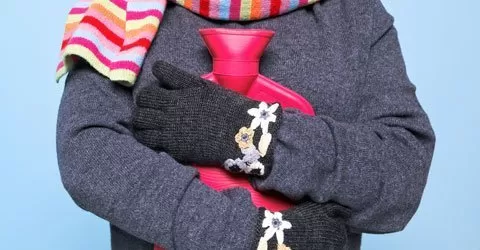
Cold Weather
With colder weather on the way, it’s really important to remain fit and healthy at this time of year to help your body fight off the common colds and viruses that are circulating. Eating well, wrapping up warm and carefully planning your journeys are simple ways stay safe during winter.
This blog highlights some of the first aid tips you may require over the winter months and potential hazards to look out for.
Keep warm
It is essential to maintain body heat during winter to avoid hypothermia.
Ideally, the temperature indoors should be at least 18 degrees. If you cannot afford to keep the heating on all winter (it can really add up!) then keep adding the layers, have accessible blankets around the house and hot water bottles which are particularly useful and a cost-effective way to keep extra warm indoors.
If you are venturing outside, ensure to wrap up warm and add layers such as, hats, scarves and gloves to prevent you from getting too cold.
Unfortunately, hypothermia is a huge danger at this time of year. The number of hypothermia deaths has doubled over the last five years. It is really important to learn the signs of hypothermia which include pale and cold skin, shallow breathing, a weak pulse and disorientation. If you suspect someone is suffering from hypothermia, then it is vital to encourage the to undertake the following:
– Slowly restore warmth and get indoors if they are not already
– Begin CPR if necessary
– If they are conscious, give them a warm drink such as
– Keep their body temperature up by wrapping them in blankets
Further tips for keeping warm and staying safe:
– Wear several light layers rather than one chunky layer
– Regular hot drinks and meals
– Be very careful around open fire
– Close the curtains after dark to keep away drafts
– Keep your hands clean to reduce germs spreading
– Stay active
– Keep windows closed at night
Keep healthy and fight the cold
As mentioned in the introduction, cold weather can have a detrimental impact on your health. There are many preventative measures that can be taken to ensure that you are fit and healthy throughout the winter months and avoiding sickness:
– Enquire about getting the flu jab
– Take multivitamins
– Maintain a healthy diet
– Have hot meals and drinks where possible
– Invest in a hat, scarf and gloves and a good coat
– Exercise and keeping active helps to maintain body heat amongst many other health benefits
When the temperature drops to below 8 °C some people particularly vulnerable people such as young children, people with existing health conditions, people with a low income and elderly people become at risk of various problems:
– Heart attack
– Stroke
– Pneumonia
– Falls and injuries
– Hypothermia
Travel safely
During the winter, travelling can become particularly hazardous. Take extra care when walking outdoors as footpaths can become slippery. Invest in a sensible pair of shoes with good grip to help to prevent slips and trips.
If you are driving, it is important to be aware that the roads can become slippery and dangerous. It is a good idea to have a winter first aid kit stocked in the car including blankets and water in case you break down. Other driving essentials during this time of year include an ice scraper, winter screen wash, de-icer and a foil blanket.
We hope that this blog has given you some basic ideas about how to stay safe during winter.
As well as ensuring that you take all of these measures to stay healthy, please look out for vulnerable people and do what you can to help them to keep warm. Perhaps consider donating blankets, hot water bottles and tinned food to those in need. Drive calmly and safely to prevent being involved in an accident.
If you are interested in learning more about learning basic first aid skills, please book yourself a place on one of our open first aid courses.
Tips for dealing with exam results stress

After an intense few months of revising and worrying for many young people undertaking GCSE and A-Level exams, the results of their hard work will be revealed over the next few weeks, with A-level results this year taking place on 15th August, and GCSE’s on the 22nd.
Although some may say that the hardest part is over, for many young people the days leading to results day will be full of anxiety, stress and doubt. If you have a child, or care for someone who is dealing with the pressure of a doubtful exam results day, here are some positive steps you can take, and bits of advice to give them before and during the day.
Discourage overuse of social media
In the lead-up to the day, and particularly the day itself, their social media feeds will be full of people posting about the upcoming results. Although some posts may help them see that others are in the same boat, the continuous reminder of these emotions may cause the young person to overthink things and cause further worry and panic. If they do not get the results they were hoping for, social media will be full of celebratory posts which could make them feel even worse.
Suggesting some calming activities that could distract them such as a walk, or watching a favourite film.
Remind them that exam results aren’t everything
Although it may feel like the most important thing at the moment, there are so many qualities and skills in a person that can’t be measured by school exams. Remind them of the good qualities they have that make them special, and reassure them that no matter what results they have, you will be proud of their hard work and support them moving forward in life.
Look to the future
It’s important to remind the young person that even if they do not get the results they wanted or expected, there are always alternative routes to gain the life skills, qualifications and work experience they need to go forward in life. If they are in the right mindset, you could help them look for their next step – whether that be further learning through school, apprenticeship, college or university.
Helping them look forward to the future will help to keep their spirits up, and may relieve some feelings of worry and anxiety.
On our Youth Mental Health First Aid course, Ajuda cover topics including stress and anxiety, with lots of practical tips on ways of dealing with these with young people in your care. Our courses can be booked in-house at our Cardiff Bay Training Centre, or at a location of your choice for groups of 12 or more. We also run this course Virtually. Ajuda are also busy organising our upcoming Mental Health and Wellbeing Wales Awards on October 2nd 2023 and then the Mental Health and Wellbeing Show in 2024 on May 9th at Cardiff City Hall. We have talks on both show days about mental illnesses such as anxiety, bipolar, depression and more, along with a selection of mental health organisations, charities and services at our exhibition.
You can order tickets for the conference here.
Type 2 Diabetes Prevention Week
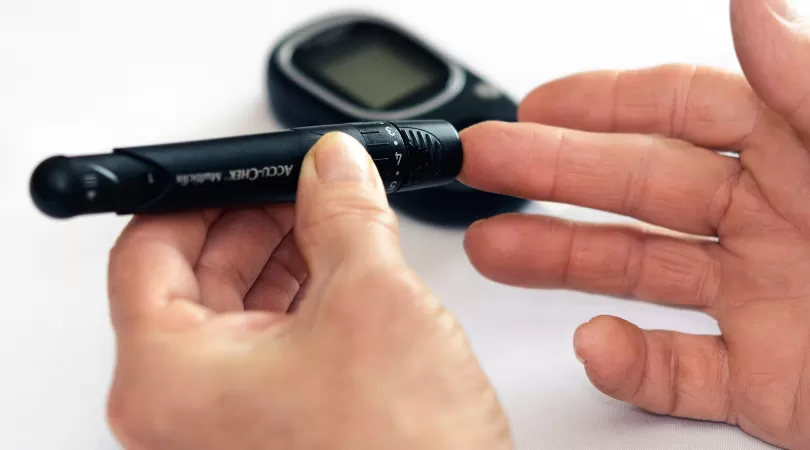
Type 2 Diabetes Prevention Week is taking place from Monday 23rd May to Sunday 29th May this year. Diabetes UK joins NHS England as proud campaign partners for this annual awareness week.
For this year’s Prevention Week campaign, NHS England has created a digital toolkit which includes everything you need to support the week digitally, including social media posts, animations, web banners and more.
There are 13.6 million people in the UK at increased risk of developing type 2 diabetes. But for many people there are steps you can take to reduce your risk.
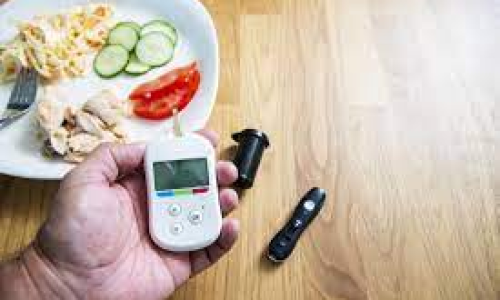
Bonfire Night First Aid
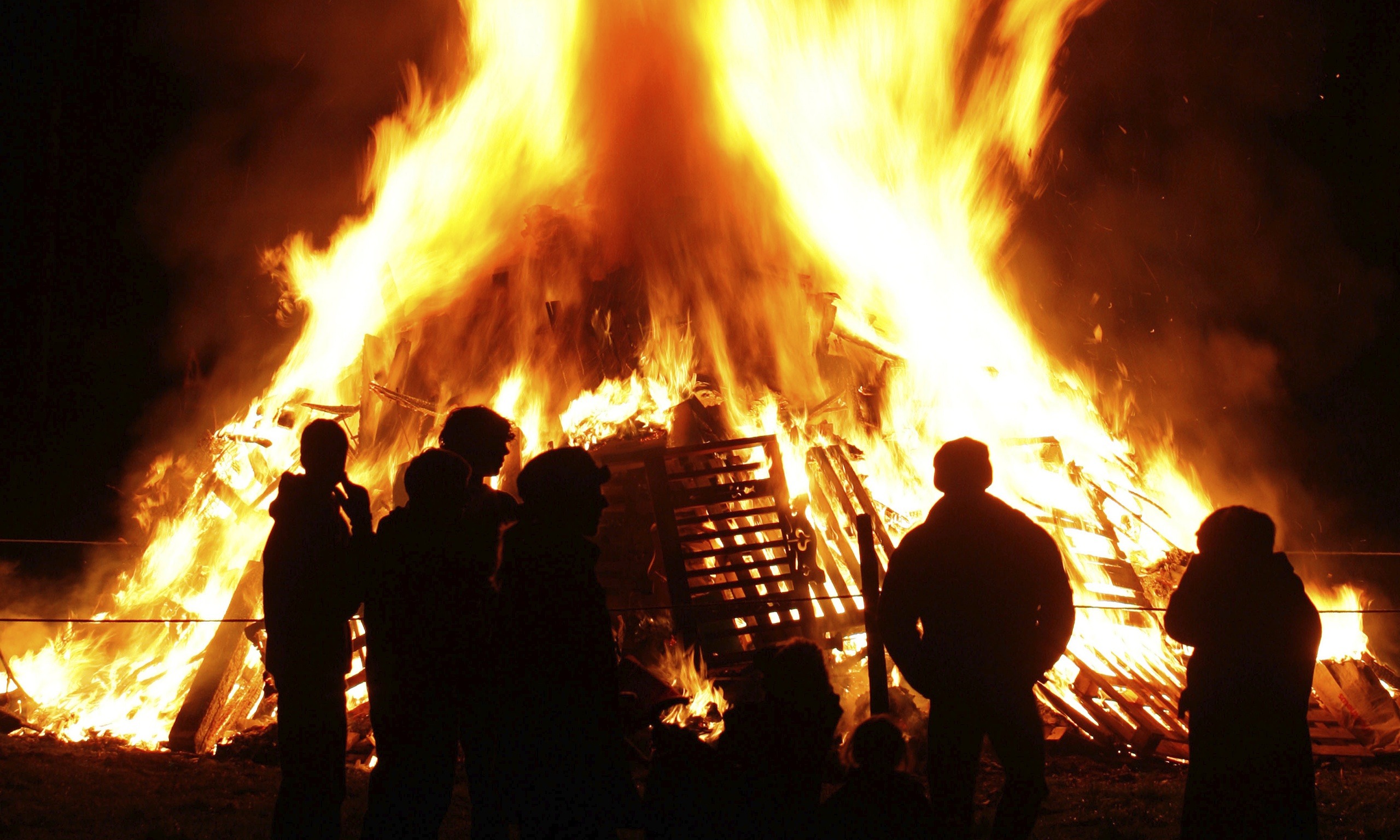
This weekend Bonfire Night will be celebrated around the UK. According to statistics from The Royal Society for the Prevention of Accidents around 1,000 people visit A&E for treatment of firework related and other bonfire night related injuries in the four weeks around the event.
Although Bonfire Night is certainly a time for fun, we’ve written this blog to provide first aid tips that are simple to learn and well help you to be prepared to treat any of these injuries if they occur.
Burns or scalds
– Run the burn under cold water for at least 10 minutes. Skin needs to be completely cool to prevent pain, scarring or any further damage.
– Remove any jewellery or clothing that is near the burn – do not remove if they are stuck to the burn.
– Don’t pop any blisters or apply creams – doing this risks making the injury worse.
– One the burn is cooled, cover with a plastic bag or clingfilm.
– If necessary, treat a casualty for shock by laying them down with their legs raised above the level of their heart e.g. on a chair.
– If the burn is on a child, or, if you think the burn is serious (e.g. deep, larger than the size of the casualty’s hand, on the hands, feet or face) call 999/112 for an ambulance. There will also be first aiders at almost all public firework displays in the UK so keep an eye out when you get to the event in case you need to go and get help.
Debris in the eye
– Do not rub the casualty’s eye or let them rub the eye as it will make it worse.
– Pour clean water over the eye to wash out what is in it or to cool the burn.
– If this does not work, try to lift the debris out with the damp corner of a clean tissue.
– If this also does not work, cover the eye with a clean dressing (if a dressing is not available make sure you use a non-fluffy material).
– Take the casualty to the nearest hospital.
Smoke inhalation
– Move as far as possible away from the smoke so that you/they can breathe in fresh air.
– Sit down or help the casualty to sit down in a comfortable position and loosen any tight clothing around the neck to help breathe normally.
– If you/they do not recover quickly, call 999/112 for an ambulance.
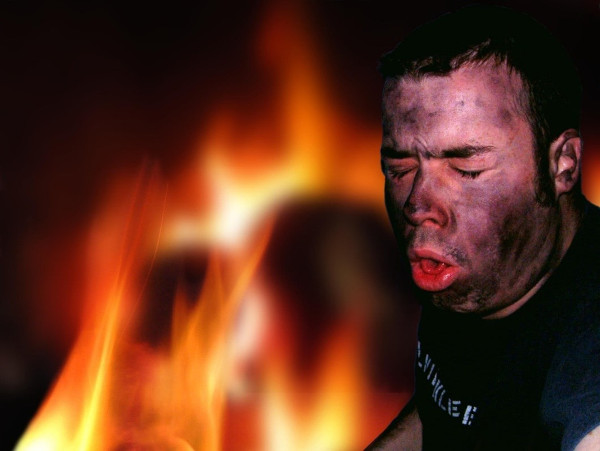
We hope you all enjoy bonfire night and remain safe throughout. Let us know your plans by tweeting us @ajuda_training we’d love to hear what you’re all up to!
Restart a Heart Day: Empowering Communities and Saving Lives!
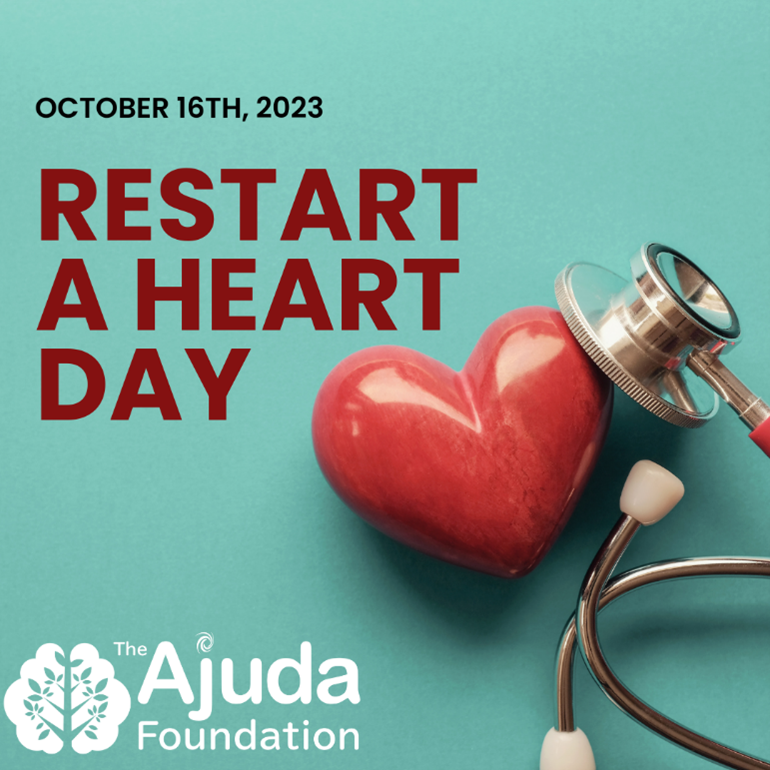
In the UK, a sobering statistic reminds us that approximately 460 individuals lose their lives to circulatory diseases every day, translating to one tragic death every three minutes. The importance of this information cannot be emphasised enough. However, the simple knowledge of First Aid and CPR presents a remarkable opportunity – it can increase a heart attack victim’s chance of survival by a staggering 80% when administered promptly. These are not just skills; they are lifesaving tools that can make the difference between life and death for anyone in need, be it a loved one or a stranger on the street.
But how do you go about performing CPR when it becomes a critical necessity? In such a situation, calling 999 and initiating CPR immediately is paramount. On our First Aid Training courses we teach CPR in-depth and how to use a defibrillator. But for now, we have included the steps to act immediately when faced with an emergency.
- Gently shake the shoulders
- Gently tip the head back and lift the chin to open the airway.
- Look, listen and feel for normal breathing.
- Arms straight and shoulders above your hands, depress the chest 5-6cm.
- Pinch the nose and seal your mouth around the casualty’s mouth.
- Blow just enough air to make the chest rise.
The Restart a Heart Project:
The Ajuda Foundation has created ‘The Restart a Heart Project’ which launched last year in the Fairwater Community of Cardiff. This initiative aimed to provide CPR and Defibrillator (AED) workshops and training that will benefit not only Fairwater’s residents but also those in the surrounding areas. We have taught over 1000 children with our free CPR sessions which have been funded by generous donations that we’ve received from individuals and local businesses.
The Restart a Heart Project is the brainchild of The Ajuda Foundation and its dedicated volunteers. Funding for this project primarily comes from The David Hill Memorial Fund.
The David Hill Memorial Fund was established by David’s family as a heartfelt response to the tragic loss of Dave, fondly known as ‘Hilly, who unexpectedly suffered cardiac arrest on July 18th, 2022. Hilly, a native of Grangetown, Cardiff, later made Fairwater his home alongside his wife, Deb’s.
A devoted farther to sons Rhys and Nathan, as well as stepchildren Stacy, Amy, Cameron, Jack, and Connor. Dave also cherished his role as a loving grandparent to five grandchildren – Jacob, Madison, Kaitlyn, Scarlett, and Reuben. Dave’s professional journey as a lifeguard equipped him with CPR and Defibrillator training, making him well-prepared to save lives.
Hilly was a beloved figure among all who crossed his path, a respected member of the local community, and someone who always went the extra mile to assist others. Now, we endeavour to perpetuate his legacy through the Restart a Heart Project, which will impact CPR and AED skills to both children and adults.
Utilisation of Funds:
The objective of this project was to create legion of “Hilly’s Heroes” and educate them in vital CPR techniques and the safe utilisation of AEDs. The legacy project started with aspirations to enhance the safety of Fairwater’s residents, and now with additional funding, we are fully committed to extending its reach to raise awareness about early CPR and AED use throughout Cardiff and its neighbouring regions.
As we observe Restart a Heart Day, we are reminded of the incredible potential that knowledge holds and its capacity to transform our communities. The David Hill Memorial Fund and the Restart a Heart Project states how even in tragedy, hope can be kindled, and loss can become an opportunity to save lives.
By arming ourselves with the knowledge of CPR and defibrillator usage, we can all become heroes, much like Hilly. We possess the power to enhance the safety of our neighbourhoods, strengthen our communities, and make our world a better place. Let us honour his memory committing to equip ourselves with these life-saving skills. Together, we can bring about positive change, one heartbeat at a time.
Choose your preferred date and book yourself onto a CPR / First Aid course here!
For more information on our First Aid courses contact us on:
02920 576883 or email admin@ajuda.org.uk
Cardiff-based training company boosted by major new business wins

A Cardiff-based training company is going from strength to strength after securing contracts to provide services to some major organisations.
Ajuda Training Academy, which operates out of its education centre in Cardiff Bay, is a multi-award-winning company which delivers fully accredited vocational courses and qualifications to private companies and public sector organisations across the UK.
Ajuda’s suite of training courses includes, amongst others, first aid and mental health training, manual handling, health and safety, food hygiene, fire safety, and safeguarding.
The company’s latest client wins have seen it become the official first aid training provider for the Welsh Government, while also winning competitive tenders to provide first aid training to both Natural Resources Wales (NRW) and Cardiff Council.
In its 14 years of operation, Ajuda has delivered training to more than 90,000 people across England and Wales, providing them with fully accredited qualifications in a variety of vocational courses.
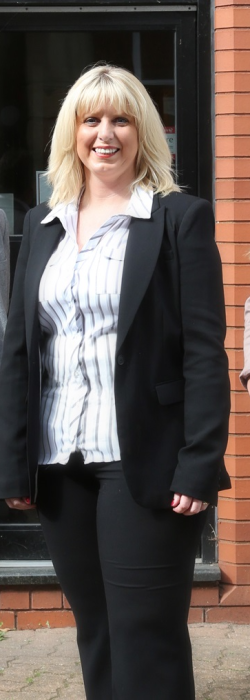
Dawn Evans
Dawn Evans, who is Ajuda’s managing director, said the new contracts have shown the company is among the country’s leading providers of training services.
“Over the years that Ajuda has been operating, we have become synonymous with quality, excellence, value, and attention to detail, attributes which have been recognised by the Welsh Government, NRW, and Cardiff Council,” Mrs Evans said.
“I am incredibly proud to have secured these contracts, and delighted that the three public bodies have recognised Ajuda’s excellence and will be able to access training of the highest calibre from our dedicated team.”
Mrs Evans added that the contract wins also help to highlight Ajuda’s innovative approach to training,
“In all of our courses we aim to make a difference and inspire others to do the same,” Mrs Evans added.
“The training is focused on each organisation’s individual requirements, using everyday scenarios, and a range of audio, visual, and kinaesthetic aids, to provide a wider understanding of the learning on offer.
“Our courses, which can be delivered through the Welsh language, are regulated by awarding bodies such as OFQUAL and Qualifications Wales, and our professional trainers have a wealth of knowledge within their individual fields, alongside formal teaching qualifications. The team at Ajuda is also proud to be recognised with the Investors in People Award.”
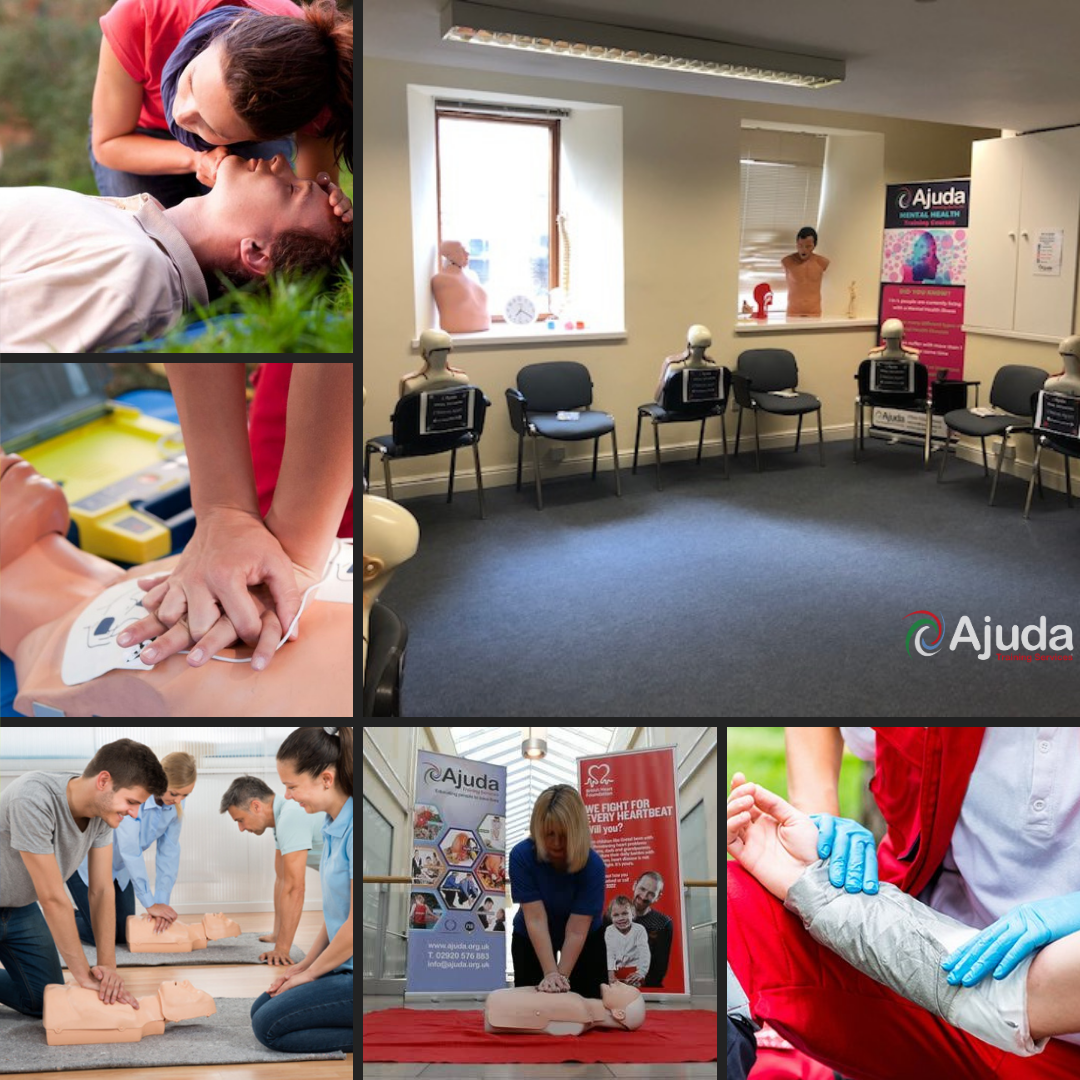
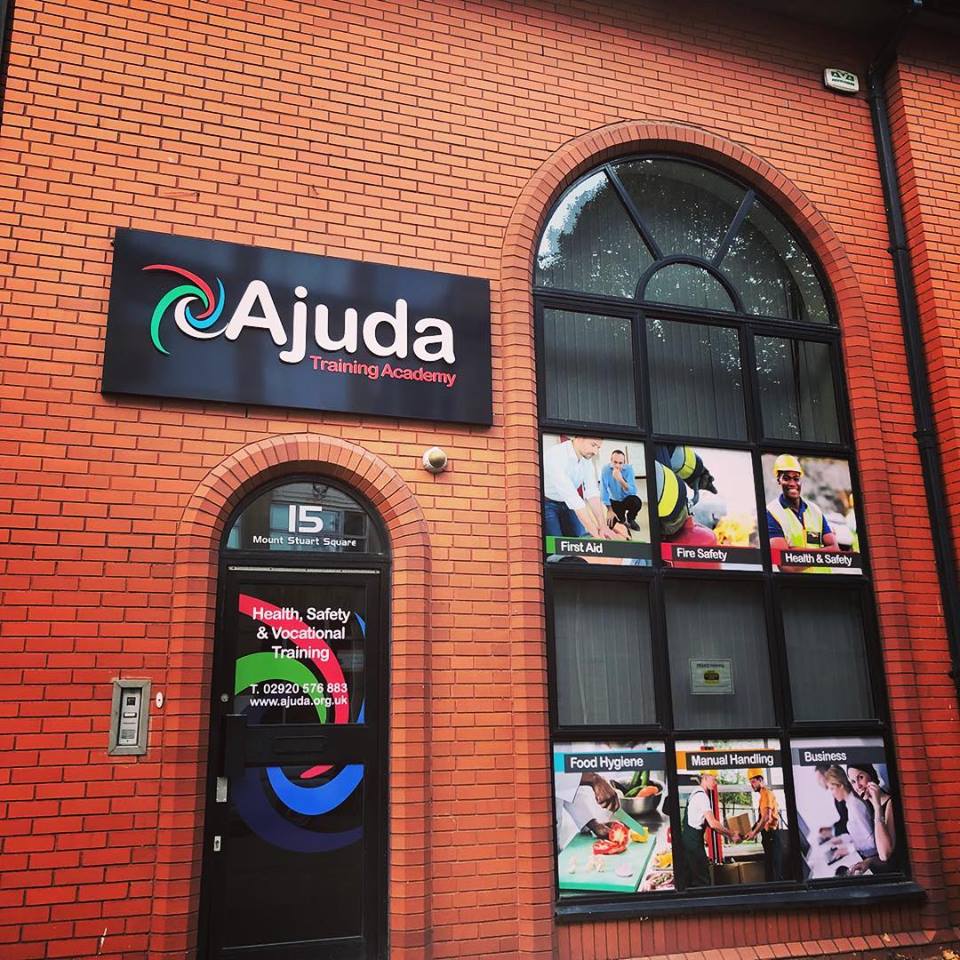
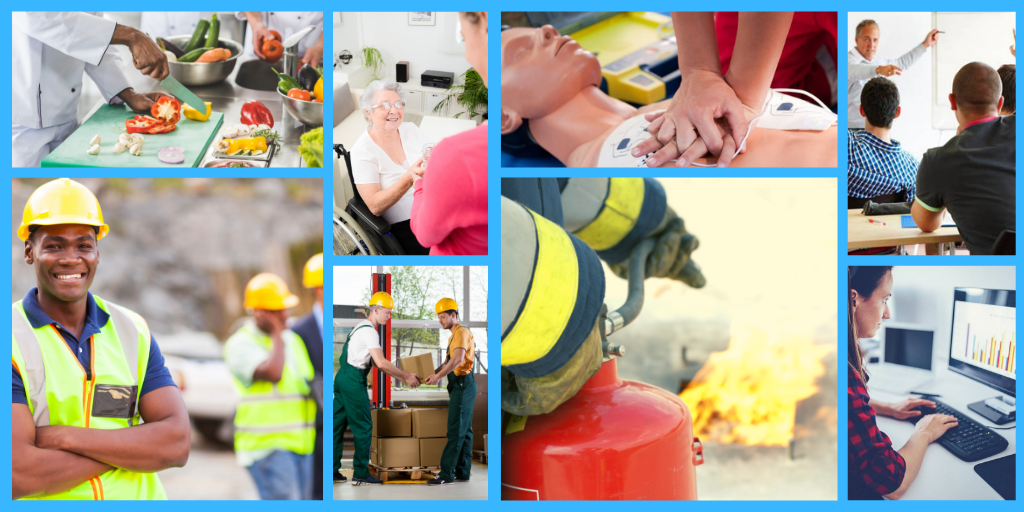
While you are here, why not browse our website and see the many courses we have on offer. There are over 100 courses within our face-to-face and online learning sections.
Contact the office if you have any questions by emailing admin@ajuda.org.uk or Telephone 02920576883
Happy St David’s Day / Dydd Gŵyl Dewi Hapus

Why do we celebrate St. David's Day?
Dydd Gŵyl Dewi Hapus or Happy St. David’s Day!
St. David’s Day is the celebration of the patron saint of Wales, St. David. Patron saints are chosen to be special protectors of an area or country. England, Ireland and Scotland all have their own patron saints, and each have their own national day to celebrate them too.
St. David was born in south-west Wales, near to a small city that is named after him today. Although no one knows exactly when he was born, many people guess that it was around the year 520 AD – however, some people believe that it was before this and that he lived for over 100 years!
It was a time where the Welsh kings had their own little kingdoms and most people lived on their own farmland. They were mostly Christian, and there were lots of monasteries built where people would learn and pray.
Nowadays, St. David’s Day is important to remember the life of St. David and everything he did for the country of Wales.
People wear a daffodil or a leek around this day, as they are two important symbols of Wales. This is because the daffodil begins to bloom early in the year around this time, and the symbol of the leek is thought to have come from a group of Welsh soldiers many years ago who would wear leeks to be able to tell each other apart from the English soldiers. It is also believed that when St. David was alive, one of the only things he ate was leeks too.
Why not make your own Traditional Welsh Cakes using our handy Recipe!!!
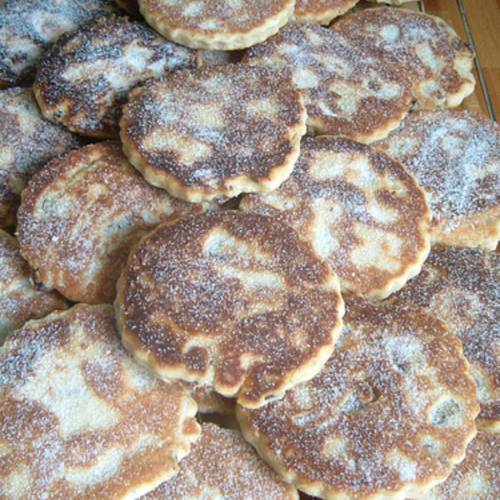
Ingredients
- 225g plain flour
- 85g caster sugar
- ½ tsp mixed spice
- ½ tsp baking powder
- 50g butter, cut into small pieces
- 50g lard, cut into small pieces, plus extra for frying
- 50g currant
- 1 egg, beaten
- splash milk
Method
- STEP 1
Tip the flour, sugar, mixed spice, baking powder and a pinch of salt into a bowl. Then, with your fingers, rub in the butter and lard until crumbly. Mix in the currants. Work the egg into the mixture until you have soft dough, adding a splash of milk if it seems a little dry – it should be the same consistency as shortcrust pastry.
- STEP 2
Roll out the dough on a lightly floured work surface to the thickness of your little finger. Cut out rounds using a 6cm cutter, re-rolling any trimmings. Grease a flat griddle pan or heavy frying pan with lard, and place over a medium heat. Cook the Welsh cakes in batches, for about 3 mins each side, until golden brown, crisp and cooked through. Delicious served warm with butter and jam, or simply sprinkled with caster sugar. Cakes will stay fresh in a tin for 1 week.
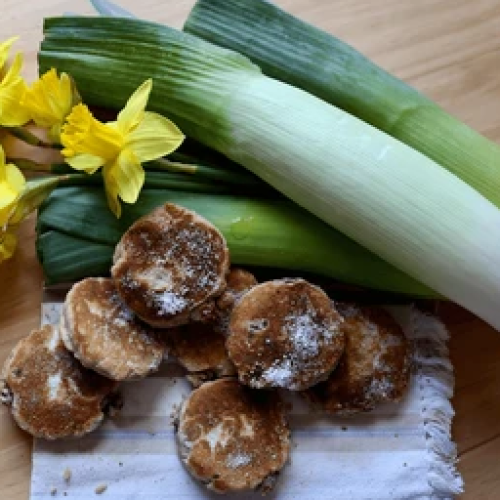

Keep Warm this Winter
Why is cold weather a problem?
When the temperature drops to below 8C, some people are at increased risk of:
- heart attack
- stroke
- flu
- pneumonia
- falls and injuries
- hypothermia
Cold weather can also affect people with mental health conditions, such as depression and dementia.
Who’s most at risk?
Very cold weather can affect anyone, but you are most vulnerable if:
- you’re 65 or older
- you’re on a low income (so can’t afford heating)
- you have a long-term health condition, such as heart, lung or kidney disease
- you’re disabled
- you’re pregnant
- you have young children (newborn to school age)
- you have a mental health condition
Be prepared
The Met Office provides weather forecasts on radio and TV, so listen in to these bulletins regularly to keep up-to-date with the weather.
Severe weather warnings are also issued on the Met Office website, through the Met Office Twitter feed, or you can call the Weather Desk on 0370 900 0100 or 01392 885 680.
The Met office also has advice on getting ready for winter.
This includes suggestions for practical things you can do to prepare for winter weather, including cold, ice and snow, high winds and flooding.
How to keep your home warm
Follow these tips to keep you and your family warm and well at home:
- if you’re not very mobile, are 65 or over, or have a health condition, such as heart or lung disease, heat your home to at least 18C (65F)
- keep your bedroom at 18C all night if you can – and keep the bedroom window closed
- during the day you may prefer your living room to be slightly warmer than 18C
- to reduce the risk of sudden infant death syndrome (SIDS), babies should sleep in rooms heated to between 16C and 20C
- if you’re under 65, healthy and active, you can safely have your home cooler than 18C, if you’re comfortable
- draw curtains at dusk and keep doors closed to block out draughts
- get your heating system checked regularly by a qualified professional
Protect your health in the cold
If you start to feel unwell, even if it’s a cough or cold, don’t wait until it gets more serious. Seek advice from your pharmacist.
Follow these tips on keeping well in the cold:
- find out if you can get the flu jab for free on the NHS
- wear several layers of clothes rather than 1 chunky layer – clothes made from cotton, wool or fleecy fibres help to maintain body heat
- use a hot water bottle or electric blanket to keep warm in bed – but don’t use both at the same time
- have at least 1 hot meal a day – eating regularly helps keep you warm; and make sure you have hot drinks regularly
- try not to sit still for more than an hour or so indoors – get up and stretch your legs
- stay active – even moderate exercise can help keep you warm
- wrap a scarf loosely around your mouth when outdoors – add a hat and wear shoes with a good grip, too
- if you have a heart or respiratory problem, stay indoors during very cold weather
Look in on vulnerable neighbours and relatives
Check up on older neighbours and relatives, and those with heart or respiratory (breathing) problems, to make sure they:
- are safe and well
- are warm enough, especially at night
- have stocks of food and medicines so they don’t need to go out during very cold weather
If you’re worried about a relative or elderly neighbour, contact your local council or call the Age UK helpline on 0800 678 1174 (8am to 7pm every day).
If you’re concerned that the person may be suffering from hypothermia, contact NHS 111.
Time for Defibruary!
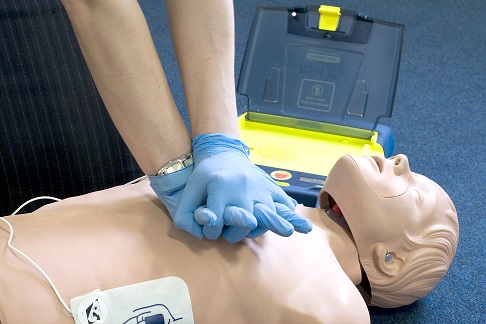
Around 30,000 people in Britain every year suffer a sudden cardiac arrest in the community and around 8,000 people suffer in Wales from the same reason. They can affect anyone at any time – from young children at school, to adults when they are at work or at home. In that case it seems to be important to know what a defibrillator is, how to use it and where to find it – isn’t it?
What does #defibruary actually stands for?
The combination of words defibrillator and February aims to create an action which will increase the awareness of defibrillators importance. The Welsh Ambulance Service dedicated the whole month for educating people how to use those lifesaving devices to decrease the negative effects of cardiac arrests. The victim’s chances for survival are close to 90% if defibrillator is used within the first minute of collapse. For every minute that defibrillation is delayed, survival decreases by 7% to 10%. Delay for over 10 minutes decreases the chance of survival in adults to less than 5 percent. The greater knowledge about defibrillators the greater chances to save lives!
Defibrillators – all you need to know
Defibrillator called also AED – automated external defibrillator is a portable lifesaving device used to administer an electric shock to the heart and restore the heart’s normal rhythm during sudden cardiac arrest. If the heart can be shocked quickly with an AED, a normal heart rhythm may be restored. Due to being portable, automated and easy to use defibrillators can be used in public places and at home.
How to use them?
Although not all defibrillators look the same, they function broadly in the same way. The most important thing you can do if you come across the unconscious and unresponsive person is to call 999 and start CPR to keep the blood flowing in the organism. Every minute without CPR and defibrillation after experiencing a heart attack reduces someone’s chance of survival by 10%. If you do have a defibrillator these are a few steps that you need to follow:
- Turn the defibrillator on with the green button and follow its instructions.
- Peel off the sticky pads and attach them to the patient’s skin as it’s shown in the picture on the defibrillator (one on each side of the chest).
- Once you attach the pads, stop CPR and don’t touch the patient.
- The defibrillator will analyse the patient’s heartbeat and assess whether a shock is needed and if so, it will tell you to press the shock button (an automatic defibrillator will shock the patient without prompt).
- The defibrillator will tell you when the shock has been delivered and whether you need to continue CPR.
- If so, continue with CPR procedure until the patient shows signs of life or the defibrillator tells you to stop so it can analyse the heartbeat again, or until the ambulance arrives.
Locate your nearest AED
Make sure that you know where the nearest defibrillator in your area is. The AED location map can be found at http://www.heartsafe.org.uk/aed-locations. It has developed over 12 years to assist people living in communities to know in advance where their local public defibrillator may be positioned in case of emergency. These are places in Cardiff where you can find AEDs:
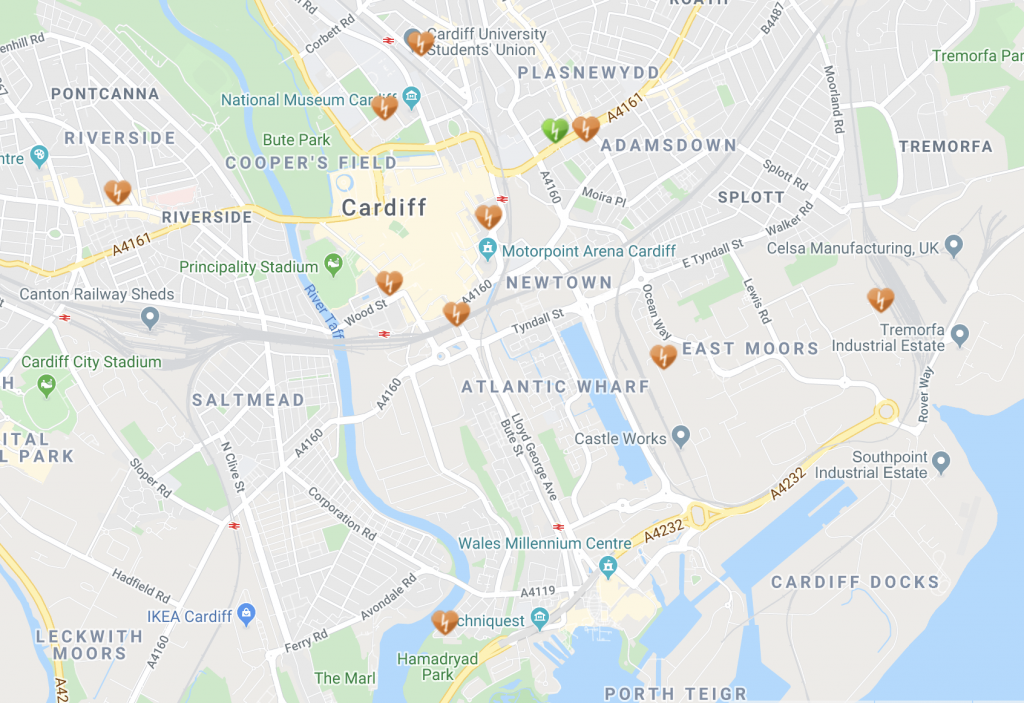
Importance of AED in your workplace
Every workplace has to invest in certain items to protect its staff members and keep them safe from harm. These include first aid kits, fire blankets and fire distinguishers. However, AED is often left off the list and so we have to make sure that this lifesaving device is located in our workplace. Survival rates of sudden cardiac arrests are very low – without immediate treatment, a massive 90 to 95% of SCA victims will not survive. For optimum survival rates, a person suffering from an SCA needs a shock from a defibrillator.
A shocking 13% of workplace fatalities are due to someone suffering from SCA, which just shows how important it is to have a defibrillator in the workplace. Business owners and HR managers need to understand the risks. When it comes to SCAs, the severity of the potential risk is incredibly high. For the cost of a new computer or a round of drinks at the office party, you could purchase a device that can, quite literally, be the difference between life and death.
Apart from having the AED at your workplace, managers should also prepare their workers for various situations by giving them specific first aid trainings. Our company can help you deliver them to both your workplace and individually. Check out our classroom and online training courses at https://www.ajuda.org.uk/ and make sure your workers can feel safe at the workplace!
JOIN #defibruary
This campaign exists to raise awareness of the impact of using a defibrillator. It also encourages the public to sign up to free first aid training classes and to raise money and fundraise to place more defibrillators within the community. At https://www.thewave.co.uk/news/local/welsh-ambulance-live-saving-campaign/ you can find all the additional information about the action and some materials to share. We encourage you to be the part of it and help us spread awareness!
